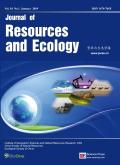Exploring the Norm-Activation Model-Based Mechanisms Influencing the Willingness of Environmentally Friendly Behavior of Backpackers
Q3 Environmental Science
引用次数: 1
Abstract
Abstract: Backpacking has become increasingly popular as an ecotourism activity in China in recent years. To promote sustainable development of tourist sites and to direct and regulate environmentally responsible behaviors, travelers must behave responsibly. This study used the “attribution theory” and “norm-activation model” to create a theoretical relationship model between personal norms, group identification, and the willingness of backpackers to act responsibly to investigate the factors that influence their willingness to behave in an eco-friendly manner. The study empirically tested the model using data from a sample of 309 backpacking tourists. The study investigates the internal and external mechanisms influencing the environmentally friendly behavior of backpackers. The findings show that (1) Backpackers' “personal norms” significantly increased their willingness to behave in an environmentally friendly manner. (2) These “personal norms” are influenced by two cognitive factors: tourists' “awareness of consequences” and “attribution of responsibility”. (3) The “group identity” plays a positive moderating role in the influence of “ascription of responsibility” on “personal norms”, while it plays a negative moderating role in the influence of “awareness of consequences” on “personal norms”. (4) Meanwhile, this study explores and compared tourists, an exceptional group of tourists, and concludes that, within an environmentally conscious tourist group, group identity plays a significant role in forcing tourists to take high-quality environmental protection actions. The findings of this study investigated the norm-activation model at the group level, enhanced the micro cases and theoretical knowledge of the model to examine the willingness of backpackers to engage in environmentally responsible behaviors, and offered some practical insights on managing destination tourists.基于规范激活模型的背包客环保行为意愿影响机制探究
摘要:近年来,背包旅行作为一种生态旅游活动在中国越来越受欢迎。为了促进旅游地的可持续发展,引导和规范旅游者的环境责任行为,旅游者必须以负责任的态度对待环境。本研究运用 "归因理论 "和 "规范激活模型",在个人规范、群体认同和背包客负责任行为意愿之间建立了一个理论关系模型,以探究影响背包客生态友好行为意愿的因素。研究利用 309 名背包游客的样本数据对模型进行了实证检验。研究调查了影响背包客环保行为的内部和外部机制。研究结果表明:(1)背包客的 "个人规范 "显著提高了他们的环保行为意愿。(2) 这些 "个人规范 "受到两个认知因素的影响:游客的 "后果意识 "和 "责任归属"。(3) 在 "责任归属 "对 "个人规范 "的影响中,"群体认同 "起着积极的调节作用,而在 "后果意识 "对 "个人规范 "的影响中,"群体认同 "起着消极的调节作用。(4) 同时,本研究对游客这一特殊的旅游群体进行了探索和比较,得出结论:在具有环保意识的旅游群体中,群体认同在迫使游客采取高质量的环保行动方面发挥着重要作用。本研究的结论从群体层面对规范激活模型进行了研究,增强了该模型的微观案例和理论知识,以考察背包客从事环境责任行为的意愿,并为管理目的地游客提供了一些实用的启示。
本文章由计算机程序翻译,如有差异,请以英文原文为准。
求助全文
约1分钟内获得全文
求助全文
来源期刊

Journal of Resources and Ecology
Environmental Science-Ecology
CiteScore
2.40
自引率
0.00%
发文量
107
 求助内容:
求助内容: 应助结果提醒方式:
应助结果提醒方式:


